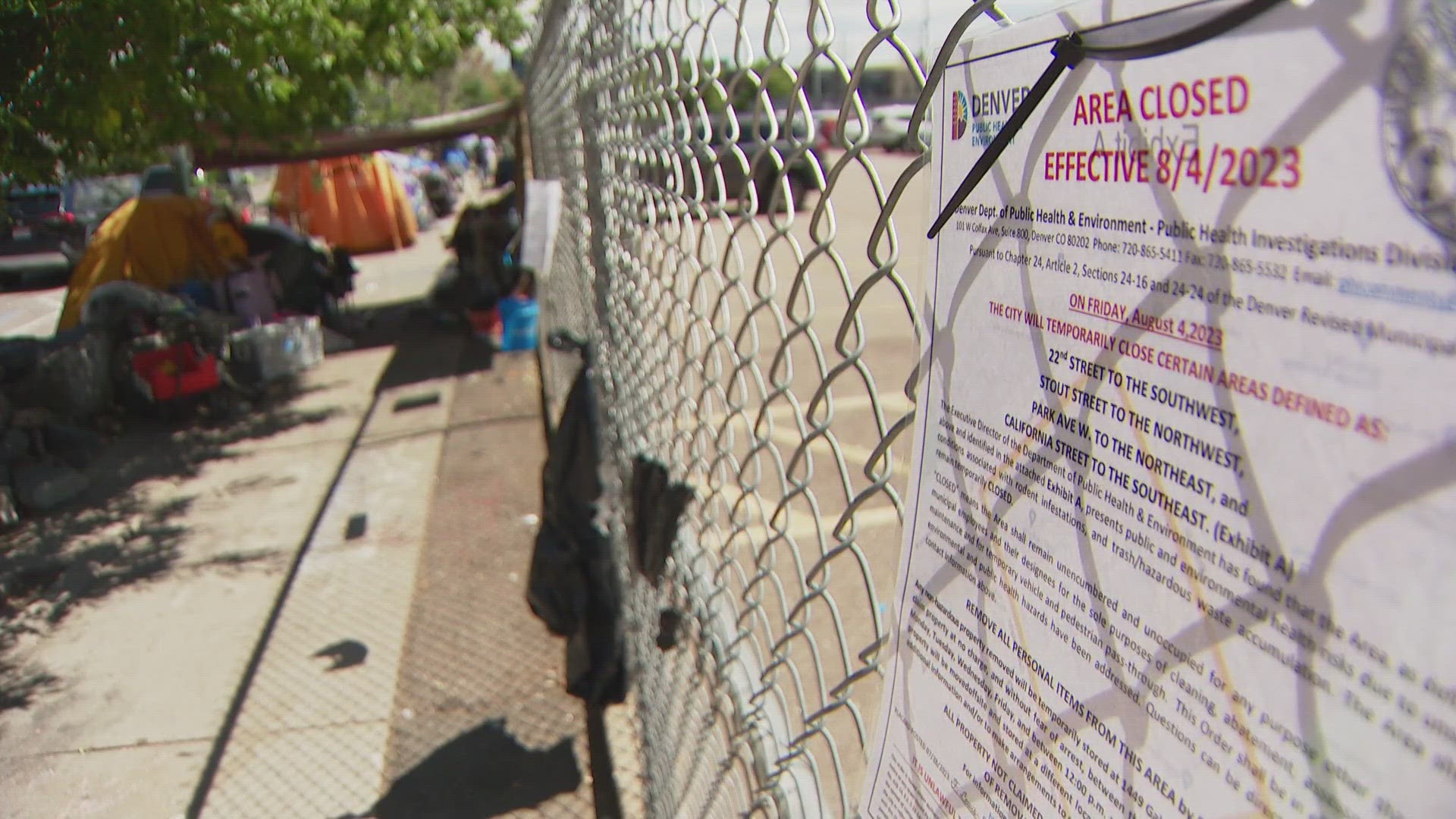DENVER — Mayor Mike Johnston spoke about his administration's standards related to clearing out encampments related to Denver's state of emergency during a news conference Wednesday.
Johnston said the city recently approved its first camp cleanup of his administration, and that the standards for clearing homeless encampments have changed.
The administration is focusing on camps where there are significant public health risks as it works to develop more housing resources for people experiencing homelessness, Johnston said. The decision to sweep the camp was made because of what he described as a "significant rat infestation."
The previous administration would clear camps for similar reasons.
"We were very worried about the health and safety of the folks in that encampment, as well as the surrounding neighborhood, that's why we greenlighted it for cleanup," Johnston said.
Ana Gloom, a member of the Housekeys Action Network Denver, said she believes in a housing-first approach without sweeping encampments and doesn't buy that it was necessary to sweep this camp.
"This is his first sweep, and he has nowhere for them to go," Gloom said. "He keeps promising to put people in housing, and yet he’s still traumatically displacing them."
Johnston said that he will visit all encampments selected for removal before they are cleared out to answer questions the residents have, including resources that are available to them.
He admitted that there are currently not many options for sheltering people who are living in a camp that is cleared out and said that is a key issue his administration is trying to address.
"This is the reason why I think the current practice around the camping ban, enforcement of that, has not been successful," he said. "It's very hard when you're moving people and you don't have access to housing to find someplace to go."
"We don't yet have the units up and ready for people to move to, and we are in the unfortunate situation of moving them off the location where they are knowing they're going to have to go someplace else," Johnston said. "This is why the framework we've built is that as a solution doesn't work, because you end up chasing people off one block and they end up on another block."
Johnston focused on the purchase of a hotel for conversion into permanent supportive housing as an example of his efforts to address the lack of destinations for people experiencing homelessness.
"That's why our threshold has really changed to if it is a public health or safety risk, then we want to make sure those people are protected," he said. "But our real focus is on a long-term plan to housing [...] What we have to offer people does not change until we have those housing units up and available, and that's what we're working on in the course of this project."
>Watch Wednesday's full news conference below:
On July 17, Johnston declared a state of emergency in the City of Denver over the city's homelessness issue. The goal of the emergency declaration was to get 1,000 people who are currently experiencing homelessness on the street into housing by the end of the year.
"It is a human rights challenge because we know right now we have people living and dying on the streets of Denver," Johnston said at the news conference. "We know we have people who need access to support and services who can't get them. We know it is a public health challenge. We know it is an economic development challenge. We know all of the key visions we have for the city revolve around making sure those who are most at risk right now can get access to the services they need."
Johnston said through his campaign that he plans to end homelessness for people living on the street by the end of his first term.
On July 24, the mayor announced he had activated the city's Emergency Operation Center as part of his emergency declaration.
The Metro Denver Homeless Initiative (MDHI) 2023 Point-in-Time (PIT) count released last month showed a more than 30% increase in people experiencing homelessness over the year before.
The count was done Jan. 30 and included those staying in shelters and outdoors. The count found 9,065 people experiencing homelessness, a 31.7% increase from 2022. The number of those who are experiencing homelessness for the first time is up from 2,634 to 3,996, according to the report from MDHI.
SUGGESTED VIDEOS: Latest from 9NEWS

